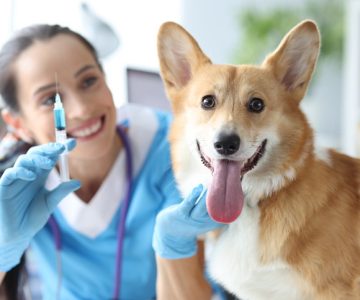How Can I Protect My Pet from Parasites?
Our pets are family, and keeping them safe from parasites is essential for their health and happiness. Parasites can cause a range of issues, from itchy skin to serious illnesses. But don’t worry; there are plenty of ways to keep these unwanted guests at bay. In this article, we’ll cover the steps you can take to protect your pet from parasites using simple and effective methods that any pet owner can follow. We’ll also highlight some key areas, such as grooming and medical treatments, to ensure your furry friend stays parasite-free.
Essential Steps to Protect Your Pet from Parasites
There are various ways to safeguard your pet from parasites. Some require a trip to the vet, while others can be done at home. Here are some effective methods to consider:
Regular Vet Visits
Regular veterinary check-ups are crucial. Vets can spot early signs of parasites and recommend the best prevention methods. Some common vet-administered treatments include:
-
Topical treatments
-
Oral medications
-
Injectable solutions
These treatments are effective for preventing fleas, ticks, heartworms, and other common parasites. It’s essential to follow your vet’s advice and stick to the prescribed schedule.
Maintain Clean Living Spaces
Keeping your pet’s living area clean is another effective way to ward off parasites. Vacuum regularly, wash bedding, and keep food and water dishes clean. A tidy home minimizes the risk of parasites taking up residence. Focus on these areas:
-
Bedding
-
Crates and carriers
-
Play areas
Pay attention to any outdoor spaces as well. Keep your yard clean and well-maintained to reduce the risk of ticks and other parasites.
Use Preventive Treatments
There are many preventive treatments available that can protect your pet from parasites. These treatments often come in the form of topical applications, oral medications, and collars. They can protect against:
-
Fleas
-
Ticks
-
Mosquitoes (which can transmit heartworms)
Your vet can recommend the best preventive treatments based on your pet’s lifestyle and health needs.
Check for Parasites Regularly
It’s essential to regularly check your pet for signs of parasites. This can include inspecting their fur and skin for fleas and ticks or watching for symptoms like itching, hair loss, and lethargy. Early detection can make treatment easier and more effective.
Keep Your Yard Clean
Parasites like ticks and fleas love a messy yard. Keeping your grass short and removing any standing water can reduce the chances of parasite infestation. Consider using pet-safe pesticides if necessary. Regularly clean areas where your pet likes to play or rest to ensure they are not exposed to hidden dangers.
Maintain a Healthy Diet
A healthy diet can boost your pet’s immune system, making it easier for them to fight off parasites. Consult your vet about the best diet for your pet’s age, breed, and activity level. Good nutrition can make a significant difference in your pet’s overall health and resistance to parasites.
Pet Hygiene
Regular grooming is vital for keeping your cat parasite-free. Groomers can spot early signs of infestation and help maintain your cat’s coat and skin. If you’re in the area, consider looking into options for cat grooming in New Hope. Grooming services can provide professional care and tips for keeping your feline friend in top shape.
Young and Elderly Pets
Puppies, kittens, and older pets are often more susceptible to parasites due to weaker immune systems. They may require more frequent vet visits and specific preventive treatments. Make sure to follow the vet’s guidelines closely for these vulnerable age groups.
Pets with Allergies
Some pets may have allergic reactions to standard flea and tick treatments. If your pet falls into this category, consult your vet for alternative solutions. There are hypoallergenic options available that can still offer effective protection. Additionally, for pets that suffer from allergic reactions, alternative treatments like dog cold laser therapy might be recommended by your vet. This non-invasive therapy can help reduce inflammation and provide relief from allergy symptoms without the need for medications that could potentially cause further allergic reactions.
Special Diets
If your pet is on a special diet due to medical conditions, ensure their nutritional needs are met. A balanced diet helps keep your pet’s immune system strong and capable of fighting off infections and parasites.
Emergency Vet Care
Pet emergencies can be stressful and frightening, requiring urgent attention and expert care. Recognizing signs of a medical emergency—such as severe bleeding, difficulty breathing, or sudden weakness—is crucial. Knowing the location of the nearest emergency veterinarian can make a significant difference in the outcome of such situations. For more information on what constitutes a pet emergency and when to seek help, you can visit here.
Indoor vs. Outdoor Pets
Indoor pets face different risks compared to outdoor pets. Outdoor pets are more likely to encounter ticks, fleas, and other parasites directly. Indoor pets, however, can still be at risk if parasites are brought into the home on shoes, other pets, or furniture. Tailor your prevention and treatment plans based on your pet’s lifestyle.
Final Thoughts
Protecting your pet from parasites involves a combination of regular vet care, preventive treatments, and maintaining a clean living environment. By following these steps, you can keep your pet healthy and happy. Remember, early detection and treatment are key. Always consult your vet for personalized advice and updates on the best practices. With a little effort and vigilance, you can keep your furry friend parasite-free.





